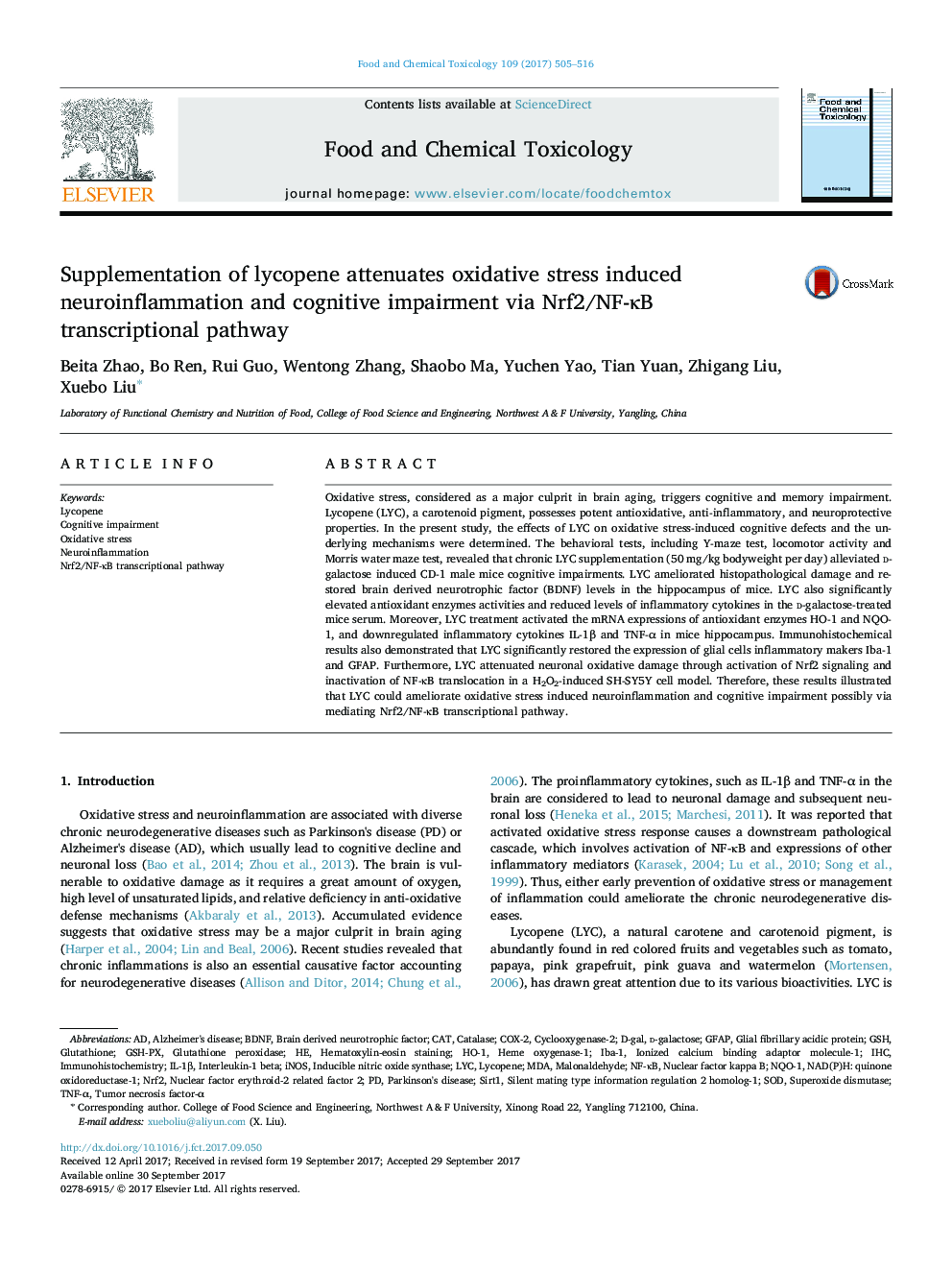| Article ID | Journal | Published Year | Pages | File Type |
|---|---|---|---|---|
| 5559993 | Food and Chemical Toxicology | 2017 | 12 Pages |
â¢Dietary intake of lycopene (LYC) attenuated oxidative stress induced memory loss.â¢LYC suppressed d-galactose induced inflammatory responses in mice brain.â¢LYC reduced neuronal oxidative damage via balancing Nrf2/NF-κB signaling pathway.
Oxidative stress, considered as a major culprit in brain aging, triggers cognitive and memory impairment. Lycopene (LYC), a carotenoid pigment, possesses potent antioxidative, anti-inflammatory, and neuroprotective properties. In the present study, the effects of LYC on oxidative stress-induced cognitive defects and the underlying mechanisms were determined. The behavioral tests, including Y-maze test, locomotor activity and Morris water maze test, revealed that chronic LYC supplementation (50 mg/kg bodyweight per day) alleviated d-galactose induced CD-1 male mice cognitive impairments. LYC ameliorated histopathological damage and restored brain derived neurotrophic factor (BDNF) levels in the hippocampus of mice. LYC also significantly elevated antioxidant enzymes activities and reduced levels of inflammatory cytokines in the d-galactose-treated mice serum. Moreover, LYC treatment activated the mRNA expressions of antioxidant enzymes HO-1 and NQO-1, and downregulated inflammatory cytokines IL-1β and TNF-α in mice hippocampus. Immunohistochemical results also demonstrated that LYC significantly restored the expression of glial cells inflammatory makers Iba-1 and GFAP. Furthermore, LYC attenuated neuronal oxidative damage through activation of Nrf2 signaling and inactivation of NF-κB translocation in a H2O2-induced SH-SY5Y cell model. Therefore, these results illustrated that LYC could ameliorate oxidative stress induced neuroinflammation and cognitive impairment possibly via mediating Nrf2/NF-κB transcriptional pathway.
